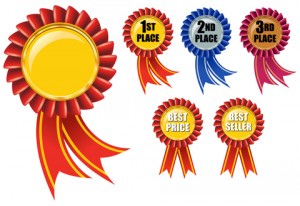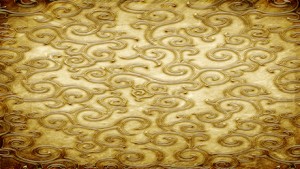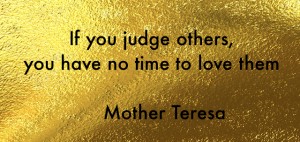In our social world, how do we become a gold digger rather than a dirt digger? How do we find the good in people when the worst is often portrayed in media stories?
Raised in a competitive culture, we have been conditioned to have high regard for achievement, and to perform better than others in almost everything we do – whether it be at school or work, in social or economic positions, in sporting arenas, in the expression of our views, or in our moral positioning. At one level, this appears to be virtuous, in that we strive to become our best, or the best in the field, which is admirable. At another level, it goes hand-in-hand with judgments, blame, win-at-any-cost behaviour, and acting in ways that devalue others or ourselves, as we consistently measure ourselves against others.
Many of us have likely witnessed the over-enthusiastic parents on the sideline of a children’s sporting event, spurring on their child at high blood pressure levels,  using strong (and maybe obscene) language, as though this particular game or race happens to be the most critical aspect in their child’s (or their own) life. This is just a snapshot of the competitive culture and behaviour that we have adopted across many facets of our society – and we know that the behaviour on the adult sporting sidelines and fields is no less intense, particularly when the stakes are higher.
using strong (and maybe obscene) language, as though this particular game or race happens to be the most critical aspect in their child’s (or their own) life. This is just a snapshot of the competitive culture and behaviour that we have adopted across many facets of our society – and we know that the behaviour on the adult sporting sidelines and fields is no less intense, particularly when the stakes are higher.
Competitive conditioning has led us not only to compare ourselves with others, but to further find fault with them. We have learnt to be judges, and we may find ourselves drawing attention to what we believe are others’ inferior traits and behaviour. When we notice that others are not up to our standard in some way (‘we would never do or say anything like that’), we may feel that we have the competitive edge. There are those of us who express our opinions more strongly in order to diminish the opinions of others (just look at our highest level of government, for example at the top).
There are indeed, numerous ways in which we compare ourselves with others (which after all, is the essence of competition). We may judge others’ attitudes, views or behaviour as not ‘normal’ or ‘proper’ or ‘good’, which breeds an attitude of ‘us and them’. Competition and judgment will always create and maintain divisiveness and situations of disharmony and conflict, when individuals fall on either side of the divisive line, or are ranked in some real or perceived order.
One of the real dangers of our competitive culture is that it can get in the way of valuing ourselves and others as fully human and fallible beings who have stories of love and hurt, acknowledging that we are all living life in the best way that we can.
Our judgmental antennae have attuned us to the faults in others: as the saying goes, ‘it is easy to find the dirt but it takes more effort to find the gold’.
Surely if we are to create a culture of greater harmony and understanding, we must close the ‘us’ and ‘them’ and ranking positions by finding the gold, the common good in everyone. We may not be well practiced at this, and it may not be so easy from the conditioning of our competitive upbringing, but therein lies the challenge!
When we focus on finding the gold, we can further celebrate and nurture our collective gem. What a difference that may make to our interactions with others, and our societal levels of tolerance!
People, including ourselves, don’t always get it right. We all need support and nurturing, not finger-pointing and judgments that alienate and focus on the dirt, leaving people feeling just the same. Supporting, as opposed to condemning, those who fail to live up to our social, cultural or personal expectations keeps the gold sparkling and the spirit alive – and we are all the better for it.
To keep up to date with Margaret’s articles and blogs, click HERE and enter your email address in the Subscribe section on the page, and click on the Go button. You will receive an email to confirm your subscription and you will need to click on the link in the email you receive in order to finalise your subscription.


Speak Your Mind